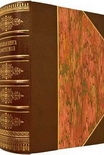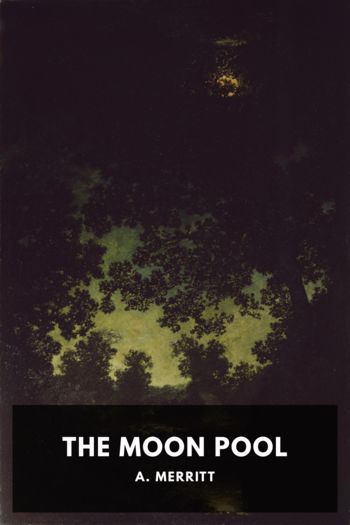Mary Jane, Jessica Blau [diy ebook reader TXT] 📗

- Author: Jessica Blau
Book online «Mary Jane, Jessica Blau [diy ebook reader TXT] 📗». Author Jessica Blau
We’d learned about the civil rights movement in school. It made me feel hopeful, like change was happening all around us.But sitting at Elkridge that day, I felt stuck in a time-warp atrium of segregated politeness.
At dinner that night, my mother told my father about the Cones’ mixed marriage.
“Hm.” My dad sawed off a thumb-size bite of steak. “How can he play golf?”
“How can he play golf?” I repeated. I didn’t understand what golf had to do with it.
“The Jew clubs won’t take him because of his wife. And the normal clubs won’t take him because he’s a Jew.”
When I didn’t answer quickly enough, my mother said, “Your father is speaking to you, Mary Jane.”
“I don’t think Dr. Cone plays golf,” I said. In all my organizing and searching of the Cone house, I’d never seen golf clubs.Even though this was a deflection, it wasn’t a lie.
My dad shrugged. Chewed. Stared down his steak. I forced in another bite of lasagna.
“We’re going to pray for Mrs. Cone on Sunday.” My mother trimmed off a rim of fat from her steak. It looked like a thick whiteworm.
“Why are all the people who work here Black?” I asked, not looking up from my lasagna.
My mother’s face shot toward me with the speed of a bullet. “What kind of a question is that?”
“Good employees.” My dad put another thumb of steak in his mouth.
“I just mean, well, don’t you think it’s strange that Black people work here but aren’t allowed to join? Why don’t white people work here?”
My mother put down her fork and knife and laid both her palms on the table. “Is this appropriate dinner table talk?”
My dad sawed away at a bloody center bite. “Ted is white.”
“He’s your caddie.”
“Yes, he is.” Dad spoke while chewing.
My mother picked up her fork and knife and went after another worm of fat. “I don’t think this is appropriate dinner tabletalk.”
“Why don’t you have a caddie who’s Black? Why is the bartender Black but not your caddie?”
My mother put down her fork and knife again. “Mary Jane! What has gotten into you?”
My father stabbed his fork and knife into the meat. He looked directly at me. It was so unusual that I could only look backfor a couple of seconds before I turned my head toward my lap. Finally Dad said, “The bartender, Billy, makes the best Manhattanthis side of the Mississippi. That’s why he’s the bartender. And Ted is a damn good caddie. If you can find me a Black man who can caddie like Ted, I’ll take him.And if you can find me a white man who can mix a drink like Billy, I’ll take him.” It was the most I’d heard my dad say ina long time, maybe ever. Perhaps it was because we’d never discussed golf or drinks before.
“If Billy wanted to join the club, would you let him?” I looked up from my lap.
“Not up to me.” My father started sawing again. “But the club rules say that no, he can’t join.”
“I don’t approve of this conversation.” My mother had lowered her voice and slitted her eyes. I could tell she was worried someone might overhear us.
“But I will tell you this, Mary Jane”—Dad put another bite in his mouth—“if we had to let another race into the club, I’drather have a Black than a Jew.”
“Can we please change the topic?” my mother asked.
My father pushed his chair back and sat straighter. “Most Black men know their place. They don’t assume anything. They’rea pleasure to be with. The Jews, now. The Jews think they’re smarter than everyone else. And that makes them unpleasant, untrustworthy,and unreliable.”
I looked back and forth between my mother and father. If you had asked me at the beginning of the summer if I knew my parentswell, I would have said yes. But these two people sitting here were utterly foreign to me. In school we’d learned about anti-Semitism,the Holocaust, racism, and the civil rights movement. What we’d never learned was that sometimes ideas of racism and anti-Semitismwere sparked to life by the very people you lived with.
“I don’t think it’s right that Black men should have a place to know when they’re around you,” I said. “And Dr. Cone is none of those words you used to describe Jewish people.” My lips quaked.This was the first time I’d ever voiced a disagreement with my father.
Dad turned his head toward me. “You don’t know him, Mary Jane. You work for him.” He went back to his steak.
What my father said about my knowing Dr. Cone stuck in my mind. I did think I knew him. Was I wrong? Was I just an employeeto the Cones, and was their affection for me something like my father’s affection for Billy the bartender? Did they only likeme when I knew my place?
“Are you done?” my mother asked. She meant was I done talking. And, really, she wasn’t asking.
“Yes,” I said. “I’m done.”
The kids were restless at Sunday school, so my mother started playing “Rise and Shine” on the guitar. I wondered if the Cones would mind if I taught the song to Izzy. Mrs. Cone seemed disapproving of the churchand Dr. Cone was a Buddhist Jew. But Izzy would love the rhymes and naming all the animals on Noah’s ark. And Jesus nevereven got a mention, so maybe they’d think it was okay.
After Sunday school my mother walked home to drop off her guitar and I hurried to choir practice. Mr. Forge, the choir director,rapidly clapped his hands together as I approached. “Hurrah!” he said. “Our greatest voice is here!” He was an enthusiasticman who smiled often and bounced on his toes when he conducted. When I saw Liberace on television, I thought of Mr. Forge.They





Comments (0)